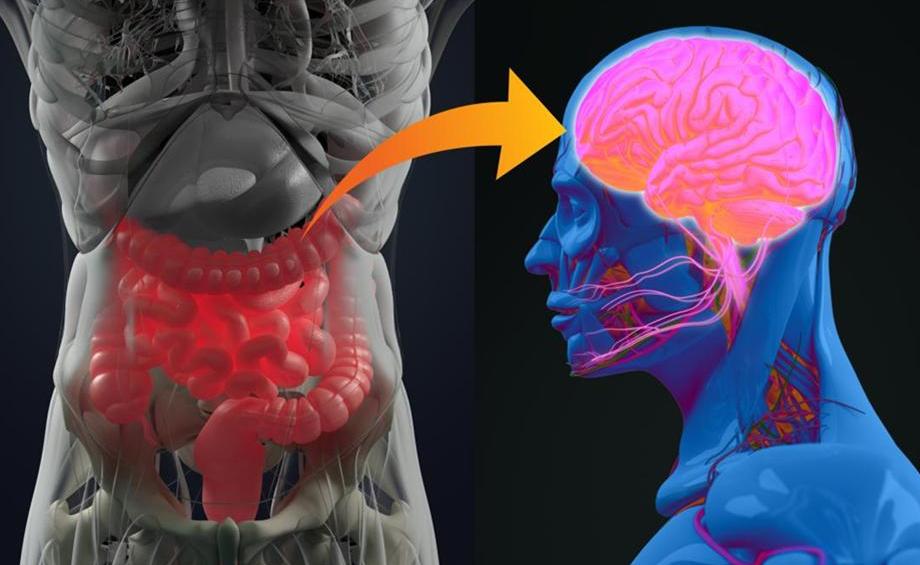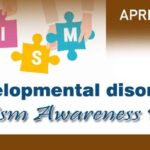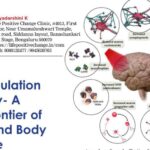What Is Autism? Basic Food Science behind ”Autism”
Autism, also referred to as autistic disorder or an autism spectrum disorder (ASD), is defined as a developmental disability that can cause significant social, communication and behavioural challenges. Autism is considered a spectrum disorder because while some children only have mild symptoms, others can have severe life-challenging signs of autism.
Autism symptoms:
It can differ by individual, but people with ASD often have ongoing social difficulties including trouble communicating and interacting with others. They may also perform repetitive behaviours while not taking interest in many activities. Symptoms of autism are usually noticed within the first two years of life in 80 to 90 percent of cases.
Causes:
There may be several different factors that make someone more likely to have autism including environmental, biologic and genetic factors. Leaky gut and an abnormal gut microbiota have also been associated with ASD.ASD commonly begins before a child turns three years old and then lasts throughout his or her life. Some children with autism meet their developmental milestones until about 18 to 24 months, but then they stop progressing or even lose skills they already had.
1. The digestive system and the gut-brain connection
The gut and brain are connected via a communication highway known as the gut-brain axis . The line of communication is bidirectional whereby the gut can send messages to and influence the brain and vice versa. The gut communicates via chemical messengers (for example, hormones and neurotransmitters), bacteria or bacterial by-products (originating in our microbiome), and immune cells, while the nervous system directly innervates the gut via the vagal nerve and sends chemical messages in the form of neurotransmitters. Therefore, if gut health is an issue, this can have a significant impact on nervous system and brain function.
2. The microbiome
Our gut is home to a large population of bacteria known as the microbiome. This ecosystem of beneficial bacteria is responsible for an impressive range of physiological functions, including immune system regulation and nervous system activity. If our microbiome becomes unbalanced, known as dysbiosis, this can trigger a cascade of negative outcomes that can contribute to the development of ASD.In infants and young children, the microbiome significantly influences the development of the immune system and contributes to neurodevelopment via the gut-brain axis. Dysbiosis is often seen in children with ASD, and the presence of dysbiosis and severity of other digestive symptoms has been associated with severity of ASD symptoms.


3. Leaky gut
A well-functioning, robust digestive system is acts as a buffer between our internal body and the outside world. Normally, the cells lining our digestive tract exert strict control over what is transported across cell membranes and into the blood, keeping unwanted substances out of the body and shuffled along to be eliminated with our stool as a waste.
Unfortunately, the integrity of our gut lining can be compromised. This leads to increased permeability of the gut (aka leaky gut) and the unregulated movement of food particles and other substances into the body. The immune system recognises these substances (food, bacteria, or chemical) as foreign invaders and mounts an immune response against them.
The role of diet and food
Diet plays a significant role in gut health and immune system regulation. The food we eat either supports or starves our microbiome and is a huge factor involved in the development of dysbiosis. As dietary changes can be incredibly challenging in children with ASD who may be picky eaters or who may already have a restricted diet, the best approach is to consult Dr.Praveen Jacob and Dr.Venkatramana hedge team, and Dr.Nandhini V Mohan who well versed in nutrition for guidance about the most well indicated diet changes for your child based on their individual health. This ensures the best use of your time and energy in making difficult dietary changes.


The liver and detoxification system
Our liver works hard day and night to manage chemical load in the body. From the food we eat, to the hormones and neurotransmitters our body produces, to the chemicals we are exposed to in the environment on a daily basis, the liver is constantly detoxifying the good and the bad to keep our body in homeostasis. Liver function and detox pathways can slow down when the required nutritional tools for optimal function are deficient, for example, amino acids from protein, zinc, selenium, B-vitamins, magnesium, or vitamin C, among’st others. Chemicals or other substances in the body that remain unprocessed by the liver, for whatever reason, can become a trigger for inflammation, immune system dysregulation, oxidative stress, and tissue damage. Depending on the chemical, some are able to cross into the brain and directly contribute to neuroinflammation.
Natural Remedies
For autistic kids or adults, I firmly believe that autism natural treatment, including diet, can play a huge role in improving autism symptoms. There are certain foods that should be added or increased in the diet while there are several that should ideally be avoided altogether.Autism natural treatment options also include many supplements ,dietary changes, hydrotheraphy treatments and traditional medicine approaches (from both Ayurvedic and Traditional Chinese Medicine) that may help.
Relaxation techniques
Behavior problems are a common issue in people with ASD. Calming techniques, such as deep pressure massage or wearing weighted clothing, may soothe agitation in people with ASD. This involves teaching people the difference between tense and relaxed muscles. People are then taught how to tighten and relax their muscles, including those in the hands, arms, and legs. This is done in combination with deep breathing, and can help alleviate stress and agitation.
Essential Oils
The following essentials oils for children with ASD and/or ADHD for their various positive effects, including boosting the mood, promoting mental clarity and reducing stress:
- Frankincense
- Sandalwood
- Vetiver
- Lavender
- Mandarin
- Cedarwood
- Chamomile
- Peppermint
- Bergamot
- YlangYlang
Sleep
Autism can cause an imbalance the melatonin hormone which causes sleeping problems leading to irritability and underdevelopment of brain functions. Including Melatonin in your diet can help in steadying the sleep pattern of the individual. It helps with the regulation of your body functions, i.e. your hormone levels, your body temperature, etc. Foods like corn, asparagus, barley, etc, are rich in melatonin.
Foods to Eat
Poultry: Poultry like organic turkey contains tryptophan, an amino acid, helps produce serotonin (a calming neurotransmitter). People with autism spectrum disorders may have decreased “tryptophan metabolism,” which can change brain development, neuroimmune activity and mitochondrial function.
Foods high in probiotics: Try to add fermented foods into the diet such as kefir, amasai, sauerkraut or kimchi. These fermented foods contain probiotics, which are essential in helping repair a leaky gut.
Bone Broth
Bone broth is loaded with amino acids and minerals that are helpful in improving gut health. This helps in boosting the immune system. A leaky gut is a common cause of Autism and improving that helps diminish the symptoms of this disorder.
Omega-3 fatty acids
Foods rich in omega-3 fatty acids help in the development of brain functions, therefore, including this in the diet of someone who has autism can have a positive effect on their development too.


DR.Nandhini V Mohan
NVM Diet and Lifestyle Clinic, Thanjavur
Assistant professor & Medical officer
Annai college of naturopathy & yoga science
Kumbakonam, Tamilnadu














